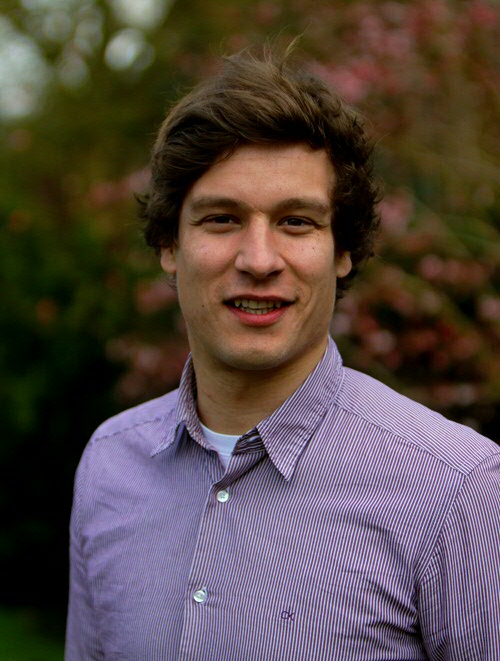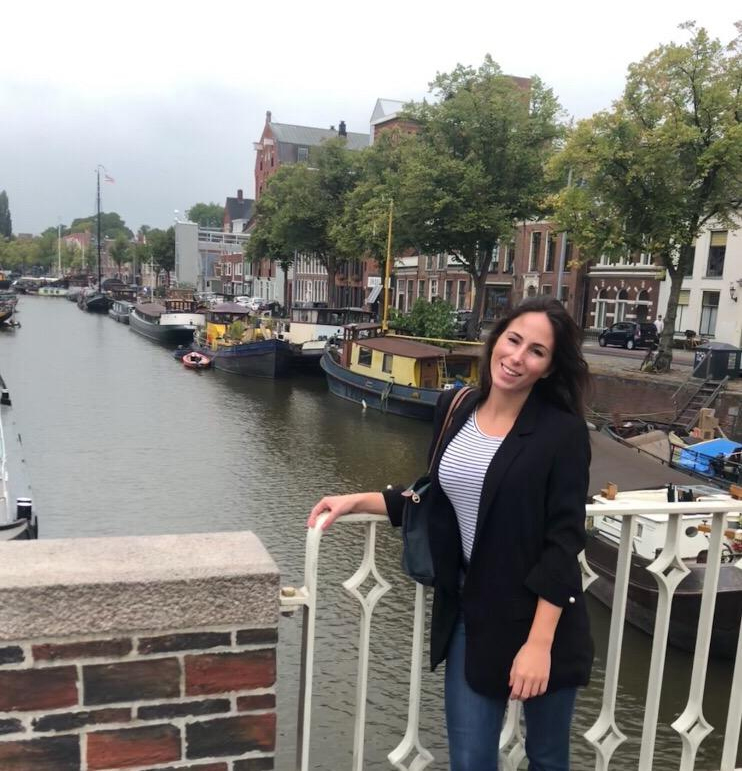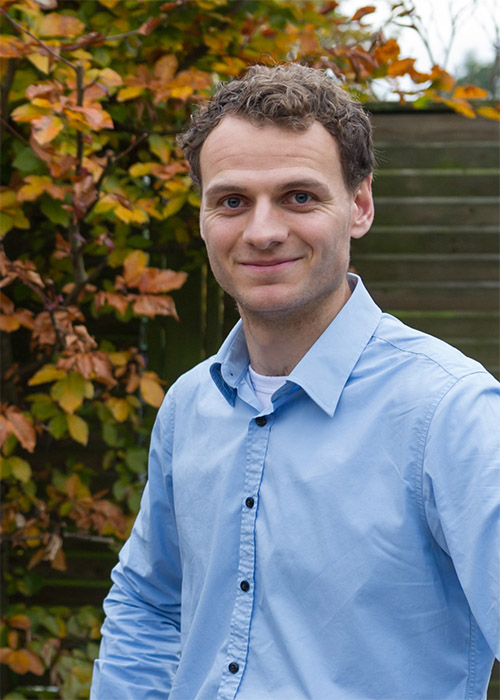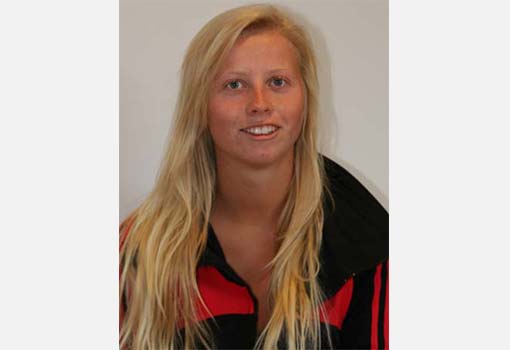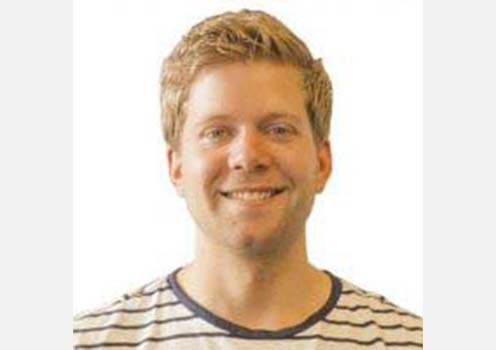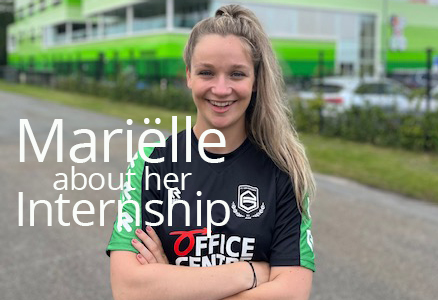
student Mariëlle Ottens
I want to spend my time helping other people to develop and feel good about themselves. I'd like to make a difference, even if it is a small one.
Mariëlle Ottens was keen to develop her talents as a sports psychologist. During an introductory meeting with coordinator Ruud den Hartigh, she expressed her interest in sports psychology and explained that she came from a passionate footballing family. The Master’s coordinator tried to find a suitable placement for all his students, and put Mariëlle forward for a spell at FC Groningen. ‘A perfect match!’, laughs Mariëlle.Most internships last one semester, but she was allowed to stay at the football club for a whole year...
‘I was at the club three days a week and I worked from home one day a week, doing things for the club alongside my studies.’Her research and internship were part of the ‘Resilient athletes: A multidisciplinary personalized approach’ project, in which researchers use data to try to predict the resilience of elite athletes. She spent the first half of the year focusing on the internship, and the second half on her thesis.To generate data for the research, players wear a sensor vest while training and completed a questionnaire twice a day. Mariëlle developed a system for converting the data so that the researchers could monitor the players as they trained. The answers received were converted into visualizations.
‘Every week, I analysed the deviant patterns. ‘If one of the players’ patterns looked different from usual, I discussed the matter with the sports psychologist and the sports scientist. We tried to find an explanation based on things that we knew that the player was experiencing at that time, and discussed whether we should talk to him about it.’Mariëlle conducted her research in the youth training scheme, which includes players from the ‘under-12’ to the ‘under-21’ teams. The TCM (trainer/coach/manager) and an assistant are jointly responsible for the players. An interdisciplinary team of specialists consisting of a sports scientist, a sports psychologist, and a data scientist assists the team. Mariëlle was part of this team of specialists.But she wanted to learn more and asked the club if she could take on more specific tasks to gain practical experience alongside her research. The club allowed her to observe players’ behaviour and talk to the players about it. The knowledge acquired in her coaching course of the Talent Development and Creativity programme proved to be particularly useful.She devised workshops for several youth teams, which she gave at the beginning and the end of the year. This enabled her to train her presentation skills. As she enthusiastically explains herself: ‘The players really got to grips with the assignments I had set up. At the end of the year, I discovered that all players had progressed towards their goals, simply by being aware of the goals that they had set themselves previously. It was great to see that something I had set up actually works in practice.’Thanks to good planning, Mariëlle managed to combine her internship with her studies, although the exam periods were very busy. She therefore tried to ensure that any deadlines for her internship were always set after her exams, so that she could focus on one thing at a time. She comments: ‘Fortunately, FC Groningen was very flexible. If I was unable to do something due to study pressure, they temporarily redistributed my tasks.’Her internship taught her that she enjoys switching between different projects. ‘I find it invigorating. Being busy isn’t a problem if you enjoy everything you’re doing.’ She also realized how important it is to take the initiative. For example, she asked to be given extra tasks, and then had to work out exactly what to do and how to do it.
‘When I started my internship, I was full of ideas about things I wanted to do, but my supervisors reined me in, explaining that I’d never be able do them all at once. That was an important lesson for me: you can do all sorts of things, but you have to pace yourself when passing on knowledge.’Mariëlle has now completed her internship and found a job as a behavioural scientist/family coordinator. She works for Team050, the healthcare organization where she has spent three years supervising children with behavioural problems. Her next task is to arrange care and supervision for families and children with non-standard behaviour. She is still interested in sports psychology, but full-time jobs in this sector are hard to come by at the moment. She is considering following the post-Master's programme in Sport and Performance Psychology in Groningen, but only after she has gained some job experience. The youth care sector appeals to her because it has a lot of common ground with sports psychology. Both sectors involve helping children and young people to develop.Last year, she realized that she thrives on change in her work, and that it is important to do things that she really enjoys.‘I want to spend my time helping other people to develop and feel good about themselves. I’d like to make a difference, even if it is a small one.’
‘Every week, I analysed the deviant patterns. ‘If one of the players’ patterns looked different from usual, I discussed the matter with the sports psychologist and the sports scientist. We tried to find an explanation based on things that we knew that the player was experiencing at that time, and discussed whether we should talk to him about it.’Mariëlle conducted her research in the youth training scheme, which includes players from the ‘under-12’ to the ‘under-21’ teams. The TCM (trainer/coach/manager) and an assistant are jointly responsible for the players. An interdisciplinary team of specialists consisting of a sports scientist, a sports psychologist, and a data scientist assists the team. Mariëlle was part of this team of specialists.But she wanted to learn more and asked the club if she could take on more specific tasks to gain practical experience alongside her research. The club allowed her to observe players’ behaviour and talk to the players about it. The knowledge acquired in her coaching course of the Talent Development and Creativity programme proved to be particularly useful.She devised workshops for several youth teams, which she gave at the beginning and the end of the year. This enabled her to train her presentation skills. As she enthusiastically explains herself: ‘The players really got to grips with the assignments I had set up. At the end of the year, I discovered that all players had progressed towards their goals, simply by being aware of the goals that they had set themselves previously. It was great to see that something I had set up actually works in practice.’Thanks to good planning, Mariëlle managed to combine her internship with her studies, although the exam periods were very busy. She therefore tried to ensure that any deadlines for her internship were always set after her exams, so that she could focus on one thing at a time. She comments: ‘Fortunately, FC Groningen was very flexible. If I was unable to do something due to study pressure, they temporarily redistributed my tasks.’Her internship taught her that she enjoys switching between different projects. ‘I find it invigorating. Being busy isn’t a problem if you enjoy everything you’re doing.’ She also realized how important it is to take the initiative. For example, she asked to be given extra tasks, and then had to work out exactly what to do and how to do it.
‘When I started my internship, I was full of ideas about things I wanted to do, but my supervisors reined me in, explaining that I’d never be able do them all at once. That was an important lesson for me: you can do all sorts of things, but you have to pace yourself when passing on knowledge.’Mariëlle has now completed her internship and found a job as a behavioural scientist/family coordinator. She works for Team050, the healthcare organization where she has spent three years supervising children with behavioural problems. Her next task is to arrange care and supervision for families and children with non-standard behaviour. She is still interested in sports psychology, but full-time jobs in this sector are hard to come by at the moment. She is considering following the post-Master's programme in Sport and Performance Psychology in Groningen, but only after she has gained some job experience. The youth care sector appeals to her because it has a lot of common ground with sports psychology. Both sectors involve helping children and young people to develop.Last year, she realized that she thrives on change in her work, and that it is important to do things that she really enjoys.‘I want to spend my time helping other people to develop and feel good about themselves. I’d like to make a difference, even if it is a small one.’
lees verder ...


